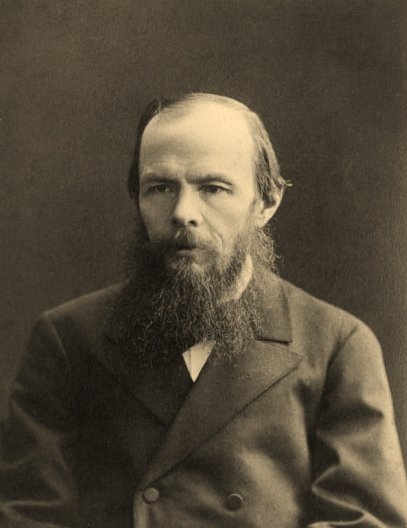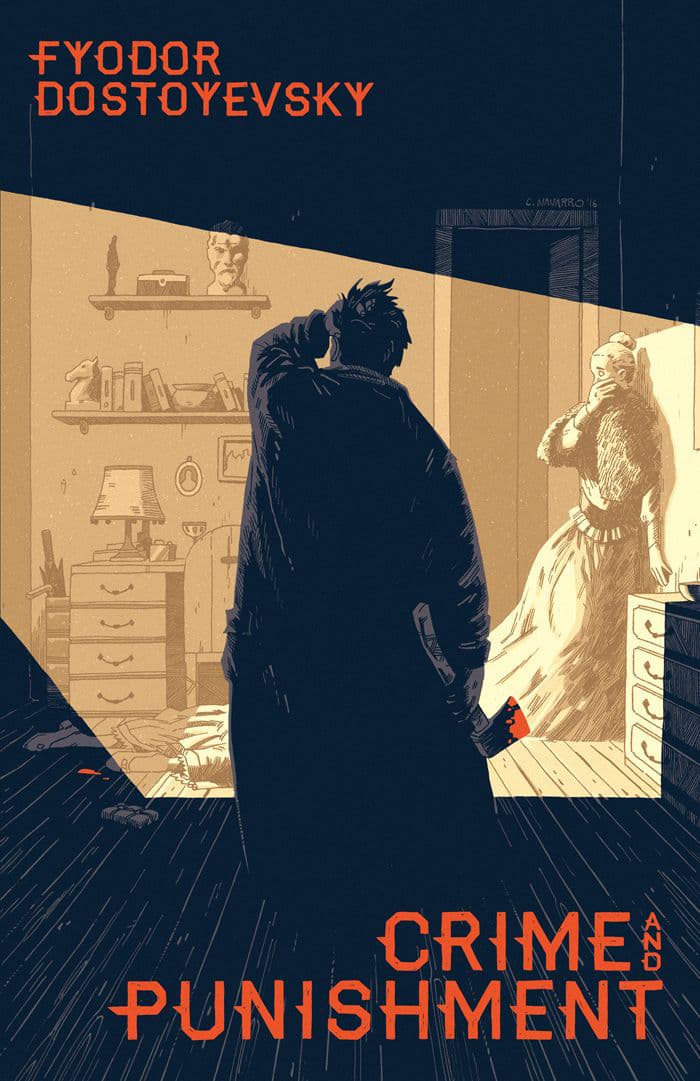
Fyodor Dostoevsky
Russian Novelist"Your Worst sin is that you have destroyed and betrayed yourself for nothing."
What kind of a man kills without remorse? What goes through the mind of a murderer? What kind of a society breeds such people?
Over 150 years ago, these questions were explored by Fyodor Mikhailovich Dostoevsky in his acclaimed novel, “Crime and Punishment”, considered as one of the best known influential psychological work of Russian Literature.
PUBLICATION
Crime and Punishment was first published in serialized form during 1866, in a literary journal “The Russian Messenger” in twelve monthly installment. Dostoevsky’s skillful prose and controversial ideas garnered significant audience to the Russian Magazine. In 1867 the novel was published as a single volume and later in 1886, the novel was translated into English by Frederick Whishaw, for western audiences.
SUMMARY
The novel centers on Rodion Romanovich Raskolnikov, a destitute law student in Saint Petersburg. At the beginning of the story, he is struggling financially and unable to continue his studies. His situation becomes even worse when he realizes that his family has sacrificed so much for his future. In a desperate move, Raskolnikov sells his last valuables to an elderly pawn broker and decides to murder her for her money.
With the pacing of the narrative we meet other characters who has their own voices and moral agendas, Like Marmeladov, a former official who has destroyed his life through drinking, Svidrigailov, a wealthy lecherous man with questionable intentions, Razumikhin, a best friend like none other and Sonya, a prostitute with a strong faith. As Raskolnikov’s family arrives in the city, their purity stands in sharp contrast to the moral decay around them, and they are slowly drawn into a tangled fate.
CHARACTER ANALYSIS
Raskolnikov, the protagonist of Crime and Punishment, is a deeply complex character whose name derived from the Russian word “Raskolnik” meaning “Schismatic” or “Divided”, justly reflects his internal conflict and alienation from society. The novel is primarily told from his perspective, offering a deep exploration of his thoughts, motivations, and moral struggles. At the core of his character lies an overwhelming sense of superiority, fueled by his intellectualism and pride. Raskolnikov views the rest of humanity as little more than a means to perpetuate the species, while he believes himself to be part of an elite, “Extraordinary” echelon, above conventional moral constraints. He contends that his transgressions, murdering the pawn broker Alyona Ivanovna and her sister Lizaveta, can be justified for a grater utilitarian good.
Yet, Raskolnikov’s inner turmoil betrays this lofty soft self-image. The guild that torments him after the murders, coupled with his physical symptoms, fainting at the mere mention of the crime, compels him to confront the reality that he is not the “Extraordinary” as he believed himself to be, not in the same league as figures like “Napoleon”. Despite his internal battle, he cannot reconcile his belief in the justification of the murder with the overwhelming evidence that exposes his failure to be the extraordinary man he imagined.
Raskolnikov’s journey through the novel reveals a gradual shift in his understanding of himself and his place in the world. His eventual realization that he loves Sonya, a figure of compassion and moral clarity, becomes the catalyst for his transformation. This relationship, grounded in love and human connection, challenges his deep-seated contempt for humanity and begins to open him to the possibility of redemption.
Throughout the novel, Raskolnikov’s interactions with the other characters serve as a mirror to his psyche, illuminating the depth of his alienation, pride, and self-delusion. These relationships, particularly with Sonya, his mother, and his sister, underscore his internal struggle and the complexities of his character, ultimately revealing the fragile humanity beneath his intellectual arrogance.
ENVIRONMENT ANALYSIS
In Crime and Punishment, it is not merely the characters that form the narrative but the environment itself, 19th century Russia emerges as the most intimidating and omnipresent force in the novel. Dostoevsky builds a portrait of a society devoured in poverty, despair, and moral ambiguity, where the oppressive weight of socio-economic struggles mirrors the psychological torment of its protagonist, Raskolnikov. The populated streets of St. Petersburg, with their squalor and chaos, become a metaphor for the fractured human soul, while the existential crisis that plague the novel’s characters. Russia is not simply a backdrop; it is an omnipresent entity, dominating the choices, limitations, and fates of its people. In this way, Dostoevsky’s Russia becomes a character in its own right-at once a tormentor and a mirror, reflecting the moral decay and spiritual yearning that define the human condition.
SOCIAL ANALYSIS
In Dostoevsky’s Crime and Punishment written in 1866 amidst Russia’s changes of the 19th century explores the themes of class division and psychological struggles impacting individuals during a period marked by a shift, from traditional to modern values, in Russia. The narrative effectively captures the challenges encountered by those on the fringes of society, individuals ensnared in poverty and marginalized by their social status and mental health, showing how the fast paced changes in the world left them struggling to keep up. In sharp contrast, the affluent class adapted to these shifts with relative ease, highlighting the significant disparities with society. Dostoevsky’s examination of these issues resonates with similar themes founded in other wester nations at the time, where advancements often came at the expense of increasing dissatisfaction among the lower classes.
A key element of Crime and Punishment is its examination of the psychological impact of social pressures, as Dostoevsky delves into the moral and philosophical dilemmas surrounding justice, guilt, and redemption. His depiction of violence as a possible result of societal alienation and the decline of traditional values encourages contemplation on the vulnerability of social order. Additionally, the novel subtly comments on the potential for rebellion, driven by marginalized groups, mirroring wider concerns about the stability of Russia’s government amid rising unrest.
Dostoevsky’s portrayal is not just a work of fiction; it is intricately connected to the real events of his time, including the increase of domestic violence and the pervasive atmosphere of violence in Russian society. These aspects enhance the novel’s realism, providing a vivid and engaging depiction of the social and political dynamics of the era. In the end, Crime and Punishment functions as both a historical record and a timeless investigation into the human experience during a period of significant societal change.
"It's the country Russia itself that proves to be the most influential, Dreadful character in "Crime and Punishment"
The People's Friend
MIRRORS OF MORALITY
The central moral of Fyodor Dostoevsky’s Crime and Punishment underscores the psychological and ethical consequences of transgressing moral boundaries, even when the crime appears to be justified by a higher purpose. Through the character of Raskolnikov, Dostoevsky illustrates that the act of committing murder, regardless of its perceived justification, inevitably leads to profound psychological torment and guilt. The internal struggle reveals the inherent human need to adhere to moral principles and accept personal responsibility for one’s actions. Raskolnikov’s torment following the murder of Alyona Ivanovna serves as a powerful exploration of the conflict between intellectual justification and the moral reality of crime.
The novel emphasizes the redemption is not achieved through intellectual rationalization of detachment from moral law, but rather through confession, self-reflection, and the acceptance of one’s human frailty. As Raskolnikov grapples with his guilt, the narrative suggests that true moral salvation can only be found when one confronts the consequences of one’s actions and seeks reconciliation with both society and oneself. Dostoevsky’s exploration of these themes highlights the enduring tension between intellectual pride and the moral necessity of humanity and responsibility, ultimately positioning Crime and Punishment as a profound meditation on human nature, guilt, and the possibility of redemption.
